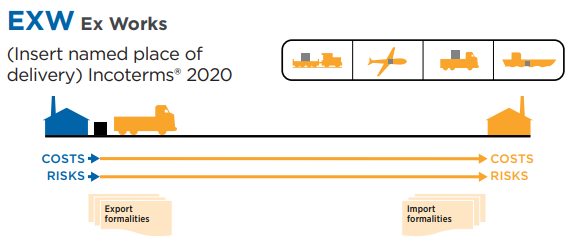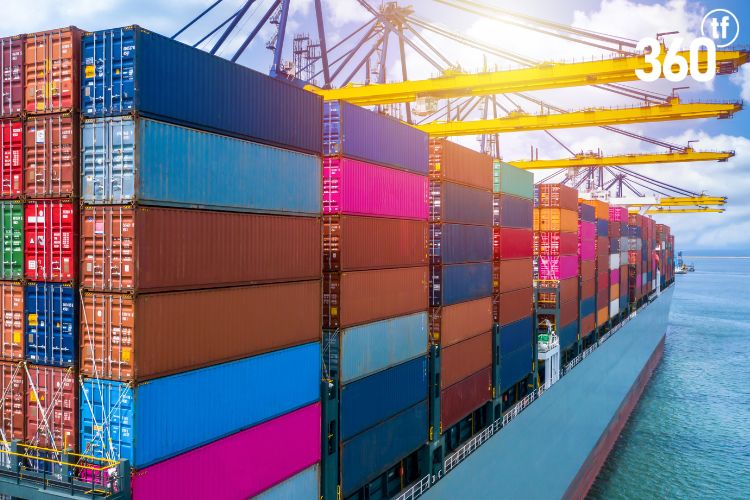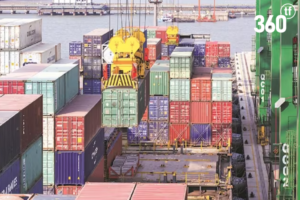Having been exposed to a wide range of shipping documents and Incoterms over the past decade, I have reflected on some of the best practices and crucial elements that should consistently be followed for trouble-free import and export processes.
Although we are moving towards the digitalisation of customs and paperless trade, the transfer of essential shipping information remains a necessity. This can be achieved through various means such as electronic data interchange (EDI), advance shipment notifications (ASN), emailing PDFs, or attaching physical copies of documents to parcels, among other methods.
Sometimes certain discrepancies can be noticed when dealing with various shipping documents and one of the most common mistakes is applying the incorrect Incoterm.
Currently, it is mandatory to state Incoterms in the UK’s import declarations. This requirement stems from the transition from the old UK customs system, CHIEF, to the new Customs Declaration Service (CDS), along with the introduction of new demands.
The newest version of Incoterms was released in 2020 and these are governed and revised every 10 years by the International Chamber of Commerce. Although not mandatory to be stated in the shipping paperwork, once they are agreed upon and used – the Incoterms become legally binding.
Numerous trade and customs-related institutions, organisations, and private companies offer training in Incoterms. Understanding these terms helps clarify the rules and obligations between sellers and buyers. It also instils confidence in situations such as resolving insurance claims if any issues arise with the goods during transport.
While many companies adhere to commercial practices and may not always exercise or seek their rights under a specific Incoterms rule, often depending on customer relationships, it’s important to note that Incoterms also determine the allocation of risks and costs. Therefore, it is crucial for businesses to at least understand the Incoterms that are relevant to their operations and when trading goods.
There are advantages and disadvantages of various Incoterms, we’ll focus on the EXW (Ex-Works) Incoterm, what its misuse can lead to, what are the risks and propose a different Incoterm that could be more suitable in various scenarios.
What is Ex Works (EXW)?
According to ICC’s Incoterms ® 2020, EXW places maximum responsibility, risks and costs on the buyer which is visualised in the ICC’s practical wallchart (that can be downloaded for free here)

- Under EXW, at the named place, the exporter of record makes the goods available for collection. In many companies, this is quite impractical (causing EXW to often be misused). Typically, a vehicle arrives at the exporter’s (named) premises and the goods are loaded by the exporter’s forklift driver. However, under EXW (Ex Works) terms, this shouldn’t occur. Instead, the buyer’s transport company should arrange for a vehicle equipped with a tail lift or a Moffett, which tends to be more expensive. Upon arrival, the driver of this vehicle is responsible for loading the goods. Numerous companies consider it impractical, and misunderstandings often arise about the obligations of each party, particularly when loading heavy goods. This involves not only arranging special equipment but also conducting risk assessments and method statements properly. Effective communication and preparation among all parties involved, including the seller, transport company, health and safety personnel, buyer, and others, are essential.
- Under EXW, sellers/exporters are not obliged to raise an export declaration and apply for any export licenses (if goods are subject to export controls). From the importer’s (buyer) perspective, this would also be very troublesome, as it is the seller who has the most knowledge about the product it sells/exports. The buyer might not be aware of the technical specifications and may not have access to any technical drawings, which are necessary for:
- Accurately classifying goods under the Harmonized Tariff Schedule (HTS) and Applying for an export license
However, what often happens, in order to accommodate for the customer (buyer), the exporter arranges transport and/or an export declaration, which is not in accordance with rules under this Incoterm.
Legal obligations and proof of export under EXW and FCA
One of the most crucial aspects to consider is the legal obligation pertaining to the proof of export evidence. Under EXW, it’s the buyer’s (importer’s) responsibility to arrange for an export declaration, however, the buyer may not provide a copy of it, as it is not obliged to do so.
This poses a problem for the seller (exporter), as the exporter is then unable to prove to the authorities the goods left the country (were exported). The seller may lack complete knowledge about the goods’ final destination if they are diverted elsewhere, as the seller is not responsible for arranging the transport.
Typically, the exporter’s commercial invoice would be zero VAT rated. Strictly speaking, in order to legally apply zero VAT to the invoice, there should be evidence of goods being exported. In the case of a lack of proof of export, authorities have every right to demand the VAT to be paid back by the seller (exporter).
What is the best Incoterm for an export declaration?
The safest Incoterm to adopt when the exporter is responsible for arranging the export declaration and is loading the goods upon the vehicle’s arrival is FCA (Free Carrier).
Under FCA these activities are the responsibility of the seller, therefore my recommendation would be to use FCA instead of EXW (e.g. FCA Company XYZ, Bristol, UK, Incoterms 2020) and ensure the FCA Incoterms are stated clearly on the shipping documents or correctly transferred by electronic means.
Although EXW Incoterm was slightly revised in 2020 version (as opposed to 2010 version) to tackle the issue of sea transportation and Bill of Lading’s transfer (and article A6/B6 explains this change in more detail), ICC’s Publication No. 723E explains that businesses should make careful considerations, before using EXW for domestic sales.
For the above reasons, I strongly urge traders to think about the EXW implications and consider using FCA Incoterm instead.
Courtesy: tradefinanceglobal.com




